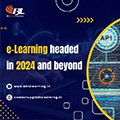
Blog
- Home
- Blog

19Mar
From Policy to Practice: Making Compliance Training Effective and Relevant
Introduction
In today’s fast-paced, highly regulated business environment, compliance training has evolved from being a checkbox exercise to a strategic necessity. Organizations are recognizing the value of ensuring employees not only understand policies but also apply them effectively in real-world situations. Bridging the gap between policy and practice is now a critical focus area, influenced by emerging trends in technology, psychology, and organizational culture.
Emphasizing Real-World Relevance
One of the most significant trends reshaping compliance training is the shift toward contextual learning. Employees often struggle to relate abstract policies to their day-to-day responsibilities. Modern training programs address this by embedding real-world scenarios, case studies, and role-specific challenges into the curriculum.
This practical approach helps employees visualize the implications of their actions, fostering deeper engagement and understanding. For instance, instead of a generic session on data privacy, a marketing team might learn about GDPR by navigating a simulated campaign review.
Leveraging Adaptive Learning Technologies
The rise of adaptive learning technologies has revolutionized how compliance training is delivered. AI-driven platforms personalize training experiences, ensuring that content aligns with an individual’s role, prior knowledge, and performance. Adaptive systems identify gaps in understanding and adjust the pace and focus of learning accordingly. This not only saves time but also makes the process more relevant and engaging for employees. Companies adopting such technologies report higher retention rates and improved compliance outcomes.
Integrating Gamification for Engagement
Gamification is no longer just a buzzword; it’s a proven method to increase engagement in compliance training. Incorporating elements like rewards, challenges, and progress tracking transforms mundane topics into interactive experiences. Employees are more likely to stay invested when they feel a sense of accomplishment. Recent examples include compliance escape rooms, where participants solve puzzles related to corporate policies, and leaderboards that foster healthy competition while reinforcing key principles.
Encouraging Continuous Learning
Compliance is not a one-time event; it’s an ongoing process that requires reinforcement. Microlearning, delivered through short, focused modules, is an effective way to sustain interest and ensure retention. Mobile-friendly platforms allow employees to access training anytime, anywhere, promoting a culture of continuous improvement. Furthermore, integrating compliance reminders and updates into daily workflows helps reinforce critical concepts without overwhelming employees.
Measuring Effectiveness
Training effectiveness hinges on measurable outcomes. Modern compliance programs leverage analytics to assess the impact of training on behavior and performance. By tracking metrics such as completion rates, assessment scores, and incident reductions, organizations can identify areas for improvement and refine their strategies. Feedback mechanisms, such as post-training surveys and peer reviews, also play a vital role in maintaining program relevance.
Aligning Training with Organizational Culture
Ultimately, the success of compliance training depends on its alignment with an organization’s culture. Leadership must model ethical behavior and prioritize compliance as part of their values. When employees see these principles in action, they are more likely to internalize them. Collaborative workshops, storytelling sessions, and open discussions foster an environment where compliance is perceived as a shared responsibility rather than an imposed obligation.
Conclusion
From policy to practice, making compliance training effective and relevant requires innovation, personalization, and alignment with organizational goals. As technology advances and employee expectations evolve, organizations must embrace these trends to transform compliance training into a meaningful and impactful experience. By doing so, they not only mitigate risks but also empower employees to contribute to a culture of integrity and accountability.

Neha Khare
About authorNeha Khare specializes in designing engaging and effective learning experiences tailored to learners' needs and also creates insightful blogs on corporate e-learning. She develops creative instructional methods, integrates multimedia, and aligns content with learning goals. Neha's innovative techniques and blog contributions significantly enhance the quality and impact of corporate training programs.



Leave a comments